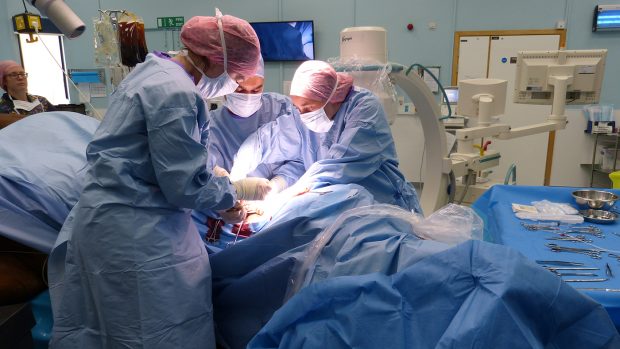“Get tested” is the message from the chief executive of a charity committed to reducing cardiac deaths in young people.
Dr Steven Cox, of Cardiac Risk in the Young (CRY), is encouraging all people between the ages of 14-35 to have an ECG screening.
Many sporting organisations already have mandatory pre-participation tests and the British Horseracing Authority (BHA) is looking into whether it needs to adopt this practice.
“If you have an undiagnosed cardiac condition, then you engage in sport, it increases your risk by three-fold,” Dr Cox told H&H.
“There is no reason a rider would be any different to someone playing rugby, cricket or football.”
The charity has free routine clinics at St George’s Hospital in Tooting, London, every few weeks as well as others around the country.
“People think of Fabrice Muamba on the football field (Fabrice, aged 23 at the time, had a cardiac arrest during an FA Cup quarter-final in 2012. His life was saved), and that affects their perception that it only happens to elite athletes,” said Dr Cox.
“The vast majority of sudden deaths which occur are at a grassroots level — someone who is aspiring in that sport.”
Dr Cox highlighted the case of 27-year-old amateur dressage rider Mair Schmeinck, who died from injuries sustained in a fall from her horse following a cardiac arrhythmia in October (horseandhound.co.uk, 25 January; letters, 12 May).
“One of the most important aspects of raising awareness of CRY after a tragedy like Mair’s is to make people aware of the signs and symptoms to look out for,” Dr Cox said.
“These include passing out and exercise-related chest pain which are both red flags as well as if there is a family history of young sudden cardiac death.
“However, only 20% of those people at risk of a young sudden cardiac death experience symptoms before the collapse.
“This is why screening is so important and why there are international recommendations for all young people to have heart checks before engaging in organised sport.”
The BHA and Liverpool Hon Moore’s University launched a cardiac study last month (news, 28 April).
It is focused on the effect rapid weight reduction through dehydration has on heart function in active jockeys. It is also hoped to help decide whether jockeys should undergo pre-participation cardiac screening.
The first free sessions were held at Malton and York racecourses earlier this month.
Dr Jerry Hill, the BHA’s chief medical adviser, recommends that jockeys take the time to get involved and have a free check-up.
“It will not only help important scientific research but might also unearth any existing, underlying conditions which our riders may not know they even had, allowing early intervention,” he said.




